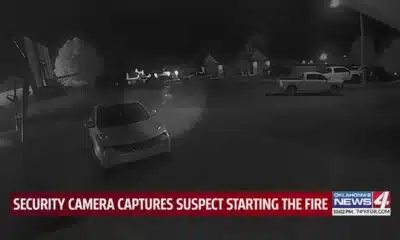News from the South - West Virginia News Feed
More than 5M could lose Medicaid coverage if feds impose work requirements
by Shalina Chatlani, West Virginia Watch
April 2, 2025
Under an emerging Republican plan to require some Medicaid recipients to work, between 4.6 million and 5.2 million adults ages 19 to 55 could lose their health care coverage, according to a new analysis.
The study, conducted by Urban Institute researchers with support from the Robert Wood Johnson Foundation, calculated that up to 39% of the 13.3 million adults in that age group who became eligible for Medicaid when their states expanded the program under the Affordable Care Act would lose coverage if Congress required states to impose work rules.
The report suggests that most of those people would lose coverage not because they aren’t complying with the rules, but because they would struggle to report their compliance to the state.
“Most adults who would lose eligibility for federal Medicaid funding are working, engaged in work-related activities, or could qualify for exemptions not readily identifiable through state databases but could still face disenrollment because of the reporting requirements,” it states. The study identified several barriers to reporting, including lack of broadband access and lack of transportation.
Forty states plus the District of Columbia have expanded Medicaid under the ACA. Overall, nearly 72 million people, about a fifth of Americans, are enrolled in the program for low-income people, which is funded jointly by the federal government and the states.
Traditional Medicaid insurance was mainly available to children and their caregivers, people with disabilities and pregnant women. But the ACA, commonly known as Obamacare, allowed states to extend coverage to adults making up to 138% of the federal poverty level — about $21,000 a year for a single person.
Nationwide, more than 21 million people with low incomes have health insurance because of expanded Medicaid eligibility.
U.S. House Republicans in February pushed through a budget plan, now under consideration in the Senate, that would require about $880 billion in cuts to Medicaid over the next decade to help cover the cost of $4.5 trillion in tax cuts. The budget doesn’t contain specifics on how that target would be met. But work requirements are a likely money-saving option: A 2023 analysis from the nonpartisan Congressional Budget Office found that imposing work rules on Medicaid recipients ages 19 to 55 who are not parents or caregivers would cut federal spending by an estimated $109 billion over the next 10 years.
The Congressional Budget Office based that projection on a plan the GOP-controlled U.S. House approved in 2023. That bill, the likely blueprint for the work requirements Republicans are considering now, would have required adults ages 19-55 to work, participate in a job training program or perform community service for at least 80 hours per month for three or more months in a calendar year. Parents and caretakers of dependent children, and those unable to work because of a health condition, would have been exempt.
Many Republican-led states are eager to impose work requirements on able-bodied Medicaid recipients. Thirteen states received permission to impose work rules on at least some Medicaid enrollees during the first Trump administration. Nine additional states requested permission to enact Medicaid work requirements during Trump’s earlier term but had not won approval by the time it ended.
When the Biden administration came into office, it rescinded all the approvals.
Supporters say requiring Medicaid recipients to work, study or train for a career gives them a boost toward self-sufficiency and financial stability. Critics, however, say such rules end up hurting far more people than they help.
The researchers from the Urban Institute mostly based their analysis on the experience of Arkansas, which in June 2018 became the first state to require some Medicaid recipients to work, volunteer, go to school or participate in job training to receive benefits. By the time a federal judge halted the policy in April 2019, 18,000 adults had lost coverage.
The researchers also looked at New Hampshire, which began implementing a work requirement but halted the program in July 2019 before suspending anyone’s coverage.
“What was found in a lot of qualitative research on the previous work requirement programs is that a lot of people were unaware of the policy, or they didn’t understand the policy,” said Michael Karpman, an Urban Institute researcher who co-authored the study.
“People who need coverage the most would do the most to try to maintain it. On the other hand, those people could also face the most difficulty with the administrative barriers,” Karpman said.
In a 2020 study examining how Arkansas’ last experience with work requirements played out, researchers from the Harvard T.H. Chan School of Public Health “found no evidence that the policy succeeded in its stated goal of promoting work and instead found substantial evidence of harm to health care coverage and access.”
Arkansas Republican Gov. Sarah Huckabee Sanders announced in January that she would ask the federal government for permission to institute work requirements, regardless of what Congress decides. The state submitted the request last week.
Especially for a rural state like Arkansas, work requirements fail to take into account a lot of the realities that people may face.
– Christin Harper, policy director for Arkansas Advocates for Children and Families
Arkansas Republican state Rep. Aaron Pilkington, who serves on the health committee in his chamber, said lawmakers “learned our lesson from the last go-round.”
Pilkington said that under the new proposal, the state will only pause coverage instead of canceling it, giving recipients an opportunity to prove they are complying. And, he said, the online portal for reporting will be a lot more user-friendly.
“I think it’s a reasonable thing to ask for able-bodied people to look for work, or try to obtain work,” Pilkington said.
But Christin Harper, policy director for Arkansas Advocates for Children and Families, said even the new version would be a challenge for many enrollees. Many people on Medicaid are juggling multiple jobs, and having to report to the state every month would be a significant burden.
“Especially for a rural state like Arkansas, work requirements fail to take into account a lot of the realities that people may face,” Harper said. She added that “with the overall job market, job opportunities may or may not be available in some of these rural towns.”
Stateline reporter Shalina Chatlani can be reached at schatlani@stateline.org.
GET THE MORNING HEADLINES.
West Virginia Watch is part of States Newsroom, a nonprofit news network supported by grants and a coalition of donors as a 501c(3) public charity. West Virginia Watch maintains editorial independence. Contact Editor Leann Ray for questions: info@westvirginiawatch.com.
The post More than 5M could lose Medicaid coverage if feds impose work requirements appeared first on westvirginiawatch.com
News from the South - West Virginia News Feed
Feds direct states to check immigration status of their Medicaid enrollees
by Anna Claire Vollers, West Virginia Watch
August 22, 2025
This week, the Trump administration’s Centers for Medicare & Medicaid Services (CMS) announced an effort to check the immigration status of people who get their health insurance through Medicaid and the Children’s Health Insurance Program.
Medicaid is the public health insurance program for people with low incomes that’s jointly funded by states and the federal government. For families that earn too much to qualify for Medicaid but not enough to afford private insurance, CHIP is a public program that provides low-cost health coverage for their children.
The feds will begin sending states monthly enrollment reports that identify people with Medicaid or CHIP whose immigration or citizenship status can’t be confirmed through federal databases. States are then responsible for verifying the citizenship or immigration status of individuals in those reports. States are expected to take “appropriate actions when necessary, including adjusting coverage or enforcing non-citizen eligibility rules,” according to a CMS press release.
“We are tightening oversight of enrollment to safeguard taxpayer dollars and guarantee that these vital programs serve only those who are truly eligible under the law,” Robert F. Kennedy Jr., who oversees CMS as secretary of the U.S. Department of Health and Human Services, said in a press release announcing the new program.
As of April, roughly 71 million adults and children nationwide have Medicaid coverage, while another 7 million children have insurance through CHIP. Immigrants under age 65 are less likely to be covered by Medicaid than U.S.-born citizens, according to an analysis from health research organization KFF.
Immigrants who are in the country illegally aren’t eligible for federally funded Medicaid and CHIP. Only citizens and certain lawfully present immigrants — green card holders and refugees, for example — can qualify.
But some states have chosen to expand Medicaid coverage for immigrants with their own funds. Twenty-three states offer pregnancy-related care regardless of citizenship or immigration status, according to KFF. Fourteen states provide coverage for children in low-income families regardless of immigration status, while seven states offer coverage to some adults regardless of status.
The tax and spending package President Donald Trump last month cuts federal spending on Medicaid by more than $1 trillion, leaving states to either make up the difference with their own funds or reduce coverage. But the new law also includes restrictions on coverage for certain immigrants, including stripping eligibility from refugees and asylum-seekers.
Stateline reporter Anna Claire Vollers can be reached at avollers@stateline.org.
West Virginia Watch is part of States Newsroom, a nonprofit news network supported by grants and a coalition of donors as a 501c(3) public charity. West Virginia Watch maintains editorial independence. Contact Editor Leann Ray for questions: info@westvirginiawatch.com.
The post Feds direct states to check immigration status of their Medicaid enrollees appeared first on westvirginiawatch.com
Note: The following A.I. based commentary is not part of the original article, reproduced above, but is offered in the hopes that it will promote greater media literacy and critical thinking, by making any potential bias more visible to the reader –Staff Editor.
Political Bias Rating: Centrist
This article provides a balanced overview of recent policy changes to Medicaid and CHIP enrollment verification tied to immigration status. It presents facts, official statements, and statistics without emotive language or partisan framing. Both the rationale behind the policy, such as safeguarding taxpayer dollars, and the impact on immigrants are covered objectively. The inclusion of context on eligibility rules and varying state approaches reinforces a neutral, informative tone, typical of centrist reporting seeking to inform rather than advocate.
News from the South - West Virginia News Feed
Students go back to school in West Virginia, but same education debates rage
by Andrew Donaldson, West Virginia Watch
August 21, 2025
While students across the Mountain State are going back to school to advance to the next grade, many parents and most of the politicians seemed to be held back in the same spots with the same education arguments of the last few years.
News headlines and social media stories come one at a time on the as-needed basis as events and the business model dictate. But separate news items and viral debates over school choice, school funding, school vaccination requirements, school closings, school performance, and school staffing are variations on one theme: What is education, and who should control it?
That basic “who/what” question of intent and control is not unique to education issues. All political stories when reduced to their essences are stories about power and money. Education has become more and more a political endeavour, because of inherently involved power and money. As such, the rules of discerning politics apply far more than the traditional policy ideas and learning philosophies of what information goes into a student and how to evaluate the information coming out of a student. Add in the culture warring elements fueled by the modern marriage of news media and social media, and you have an environment that is heavy on the vibes and light on vocation.
The COVID-19 crisis is justifiably noted to be an inflection point in the push-pull world of policy and politics in general and education specifically. COVID — or more specifically the reaction by the people involved in running the institutions of American society from schools, to government, to health care, to social order — revealed the pre-existing flaws with a stress test that most everyone failed to one degree or another. While the high-minded ideals of learning, education and bettering the next generation were still recited as if the words themselves would magically manifest such things into malleable minds, reality told a different story.
Schools were closed, opened, closed again, re-opened with restrictions and not-ready-for-prime-time hybrid and online learning. Exceptions and standards had to be adjusted on the fly. Parents and the government had a tug-of-war over who could better understand an unprecedented crisis in public health and public trust with in-classroom teachers and their students as the rope.
The generation of students who lived through it heard all the buzzwords and platitudes, but weighed them against their lived experience, and found them wanting. Words said education matters, students matter, learning matters. Actions told them the priority of the education system was to be a giant jobs and funding program first, a daycare for parents second, and once that was all satisfied, perhaps you might learn something while being taught to pass a test to show what you learned.
Post-COVID, plenty of parents and politicians seem unable to let go of the tug-of-war rope. While the individual debates over issues like the vaccine exemptions, the ballooning cost of the Hope Scholarship, and debates over what should and shouldn’t be included in curriculum continue, perspective is badly needed that all these threads form the one cord of systematically educating students. The in-classroom teachers and students are on a treadmill that starts every August and keeps going until the following June. Education in the United States of America in the Year of Our Lord 2025 is very much a machine that does not stop.
The ever-entwined socio-political news and social media coverage of education runs at variable speeds, mostly parallel to the actual in-classroom education system. When the news narratives and social media attention does cross over into the real world education system, chaos and confusion are usually the result. Regardless of the chaos or the reason du jour, the in-classroom teachers have to press ahead with the students. While the algorithms and consultants keep us entertained, the pressure on an already overworked, underfunded and constantly criticized in-classroom environment is doing no one any favors.
Not that there ever was an era of magnanimous politics, but even with cellphones being banned from classrooms the rising generations of students have more information on current events than ever before. Those students aren’t just learning the curriculum; they are learning what the adults — teachers, parents, government officials, administrators — really think about them and their place in the education and political machines that drive America. And they are going to believe us.
GET THE MORNING HEADLINES.
West Virginia Watch is part of States Newsroom, a nonprofit news network supported by grants and a coalition of donors as a 501c(3) public charity. West Virginia Watch maintains editorial independence. Contact Editor Leann Ray for questions: info@westvirginiawatch.com.
The post Students go back to school in West Virginia, but same education debates rage appeared first on westvirginiawatch.com
Note: The following A.I. based commentary is not part of the original article, reproduced above, but is offered in the hopes that it will promote greater media literacy and critical thinking, by making any potential bias more visible to the reader –Staff Editor.
Political Bias Rating: Center-Left
The content presents a critical view of the current education system, highlighting systemic issues such as underfunding, politicization, and the impact of COVID-19 on schooling. It emphasizes the struggles of teachers and students within a politicized environment and calls for broader perspective and reform. While it critiques both political sides and the media’s role, the focus on social challenges and institutional shortcomings aligns more closely with center-left perspectives that advocate for systemic improvements and greater support for public education.
News from the South - West Virginia News Feed
WV groups call on Morrisey, McCuskey to push against end of federal solar program
by Lori Kersey, West Virginia Watch
August 20, 2025
A group of West Virginia environmental organizations is asking state officials to speak against the Trump administration’s move to end a Biden-era solar program that last year committed more than $100 million for projects in West Virginia.
The Environmental Protection Agency terminated the $7 billion Solar for All program earlier this month. The program was intended to help pay for residential solar projects for more than 900,000 lower income U.S. households.
Twelve organizations — including American Friends Service Committee of West Virginia, Appalachian Voices, Christians for the Mountains, and Citizens’ Climate Lobby of West Virginia — sent a letter Tuesday asking Gov. Patrick Morrisey and Attorney General J.B. McCuskey to speak against the program’s cancellation.
“We urge you to use every tool at your disposal to push back against this unwarranted action that will harm families and small businesses across West Virginia,” the organizations wrote.
The EPA granted the West Virginia Office of Energy $106 million in Solar for All funding last year. It also awarded money to 59 other entities.
According to the Office of Energy’s website, the grant was to be used to “deploy residential solar roofs, support home energy efficiency, reduce utility costs for low-income residents, and make West Virginia households more energy resilient.”
The program was scheduled to launch and start construction in 2026, according to a timeline listed on the website.
In a post on the social media platform X on Aug. 7, EPA administrator Lee Zeldin said the Big Beautiful Bill Act, signed into law last month, eliminated the Greenhouse Gas Reduction Fund, which included Solar For All.
“In some cases, your tax dollars were diluted through up to FOUR pass-through entities, each taking their own cut off the top!” Zeldin wrote. “The bottom line is this: EPA no longer has the statutory authority to administer the program or the appropriated funds to keep this boondoggle alive.
“Today, the Trump EPA is announcing that we are ending Solar for All for good, saving US taxpayers ANOTHER $7 BILLION!,” he wrote.
Zeldin said in a video that while the program was stood up in 2024, very little of the program’s money has been spent. Recipients are in the “building and planning phase,” and not the construction process, he said.
A spokesperson for the West Virginia Division of Economic Development, which oversees the Office of Energy, did not immediately respond to an email Monday asking how the local program would be affected by the cancellation and whether or not the state’s grant money had been spent.
In a news release, Quenton King, government affairs specialist for Appalachian Voices, noted that West Virginia officials applied for the funding in 2023, knowing “the value that solar energy brings” to the state.
“The Office of Energy was actively working out how to set the program up for success and lower electricity prices for West Virginia households, and it would be a waste to throw away that work now,” he wrote. “I hope that Gov. Morrisey and A.G. McCuskey work with the administration and our congressional delegation to restore the appropriated and obligated funding for this program.”
Representatives for Morrisey and McCuskey did not immediately respond to an email seeking comment Tuesday.
YOU MAKE OUR WORK POSSIBLE.
West Virginia Watch is part of States Newsroom, a nonprofit news network supported by grants and a coalition of donors as a 501c(3) public charity. West Virginia Watch maintains editorial independence. Contact Editor Leann Ray for questions: info@westvirginiawatch.com.
The post WV groups call on Morrisey, McCuskey to push against end of federal solar program appeared first on westvirginiawatch.com
Note: The following A.I. based commentary is not part of the original article, reproduced above, but is offered in the hopes that it will promote greater media literacy and critical thinking, by making any potential bias more visible to the reader –Staff Editor.
Political Bias Rating: Center-Left
The content presents a focus on environmental protection and opposition to the Trump administration’s termination of a solar energy program aimed at helping low-income households, which aligns with priorities common to center-left perspectives. The article reports concerns from environmental groups and officials about the impact of ending the program but also includes statements from EPA administrator Lee Zeldin explaining the rationale for cancellation, providing some balance. Overall, the piece leans slightly left due to its emphasis on environmental funding and social equity in energy access while maintaining a moderate tone without strong partisan language.
-
News from the South - Arkansas News Feed7 days ago
Trump, Zelenskyy exit White House talks hopeful about security guarantee for Ukraine
-
News from the South - West Virginia News Feed7 days ago
Religious exemption debate front and center amid new school year in WV
-
News from the South - Alabama News Feed7 days ago
Despite federal shift, state health officials encourage COVID vaccines for pregnant women
-
News from the South - Alabama News Feed6 days ago
U.S. agriculture secretary announces end to subsidies for solar panels on farmland
-
News from the South - Tennessee News Feed7 days ago
Push to eliminate sugar from SNAP plan
-
News from the South - Kentucky News Feed5 days ago
First of its kind clinical trial offers new hope for Kentuckians at risk of dementia
-
News from the South - West Virginia News Feed6 days ago
Free AI testing platform rolled out to federal employees
-
News from the South - Arkansas News Feed6 days ago
Cities across the US are embracing AI guidelines for local government workers








































